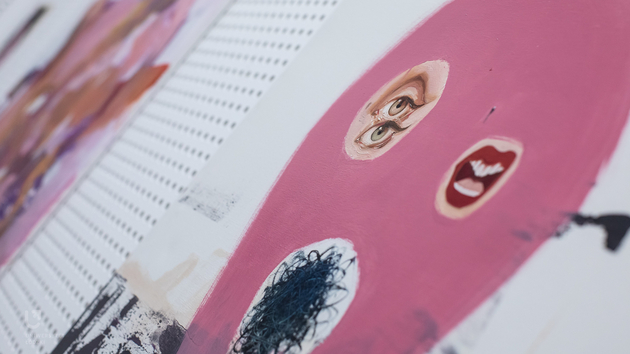The exhibition of the literary-painting / literary-travelling project "Skóra miasta: wielowarstwie" combines literature inspired by hiking with painting. The record of experiencing the space of the city of Lodz together with a visual commentary in the form of paintings and works on paper (within the nature of the poetics of abstract expressionism and lyrical abstraction) is the result of a project implemented by Dr Magdalena Skrzypczak for many years. The project assumed, among other things, recording sensory experiences from wanderings in the form of stories, notes, drafts or miniatures in art and words.
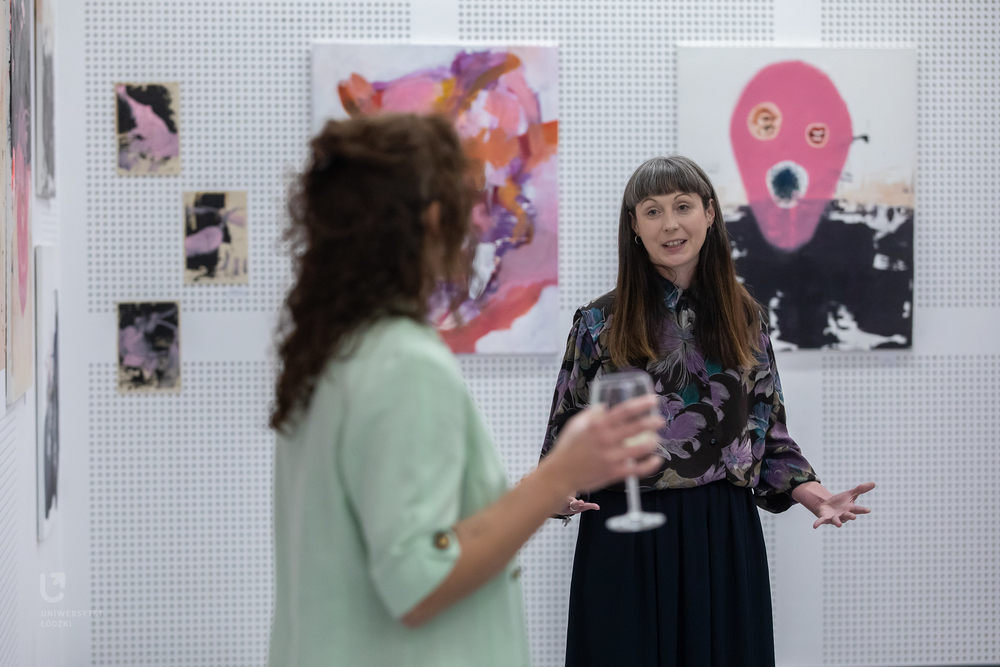
A full photo report from the exhibition opening can be found on the UL Flickr
"Wielowarstwie" was shown for the first time a year ago at Dom Literatury in Lodz and since then we have been cooperating with Magda – it has been a fantastic collaboration. These paintings are completely different from those presented at that exhibition, which means that there is movement within the project. And movement is the most important thing for Magda (…)
– explained Milena Rosiak, curator for the project.
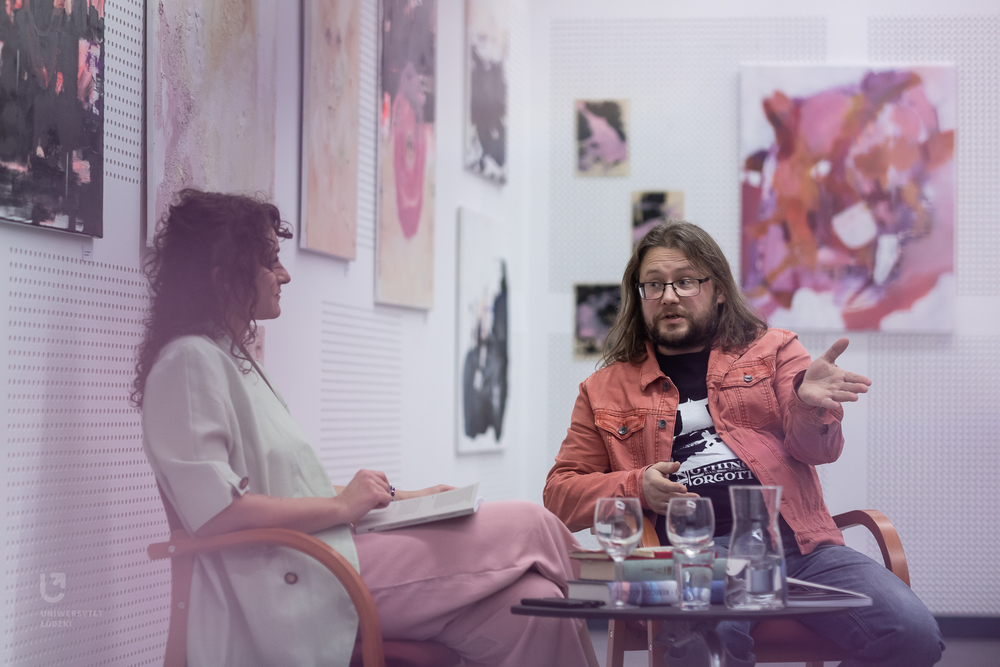
This project has evolved from a zine into a book that is a multi-layered text of culture. Since we showed "Wielowarstwie" for the first time, the project has taken a slightly different form. New paintings have appeared. Some of them were wet a while ago, but you can already touch them. Go ahead, haptics is the most important!
– added Magdalena Skrzypczak.
During the event, a cultural anthropologist and poet Dr Przemysław Owczarek (Faculty of Philology, University of Lodz) talked with the author. The audience learnt, among other things, how Magdalena explores urban space, how she keeps notes, what connects Silesia and Lodz, and what the importance of movement and constant change in her work is. When asked about the allegory of Lodz, Magdalena replied that she read the city as a gigantic sunburnt (or windswept) "slightly lewd woman" who hides the most wild stories and non-everyday narratives, denunciations made of soft urban tissue under many layers of her black frilly skirt.
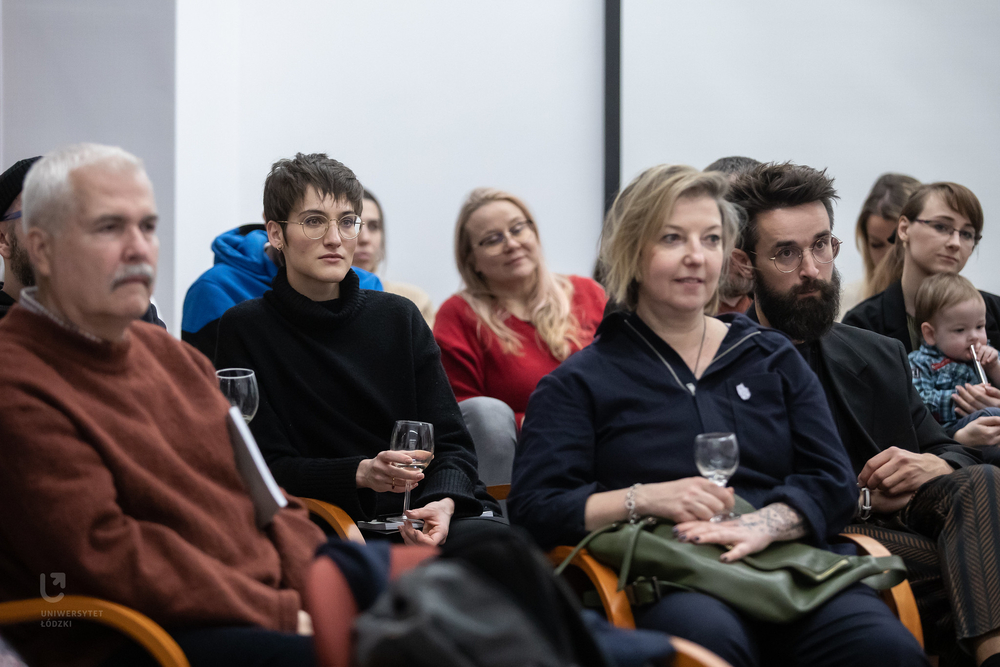
Magdalena and Przemysław talked about the inspirations and motivations behind the book "Wielowarstwie. Donosy (z) ciała miasta" [Multilayers. Denunciations (from) the flesh of the city]; about abstract and surreal images, which are a form of visual commentary of the publication, and about the creative process and forms of wandering, ways of traversing the space by the author.
There were also discussions about the Apollonian and Dionysian dimensions of vagrancy and the practice of writing. It also turned out that in the case of creative work, the spontaneity, the "heat" of the record/note, plays a great role – ultimately the record consolidates the images experienced in motion into a coherent literary (or more broadly: artistic) whole.
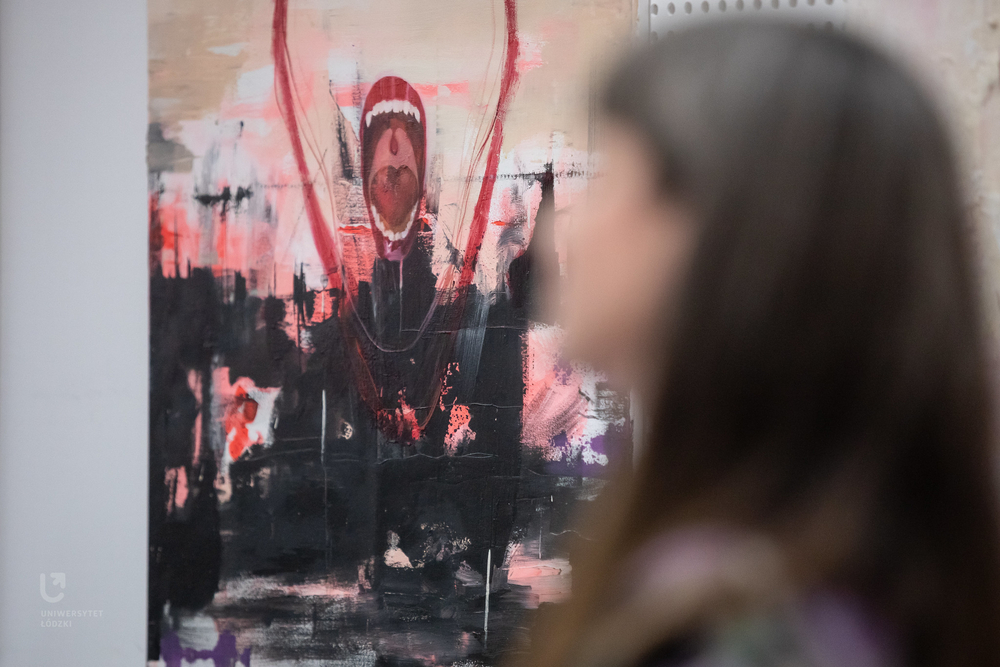
Magdalena also drew attention to the importance of the figure of Orpheus in the creative process, which consists in giving the world/audience/recipients/audience "seeds of chaos" in the form of an updated text of culture.
It happens that our scientists study, interpret and describe the world using the tools of science and art, combining these two sensibilities. And this is the case with Magdalena Skrzypczak, who is a graduate of the University of Lodz and the Academy of Fine Arts in Lodz. The opening of "Wielowarstwie" in our exhibition spaces fits perfectly into the Art&Science strategy implemented by the University of Lodz
– concluded Bartosz Kałużny from the Communications and PR Centre of the University of Lodz.
On Wednesday (11 January) at 6:00 p.m. at the university's Wozownia 11 Gallery (ul. M. Skłodowskiej-Curie 11 in Lodz) a discussion about literature as a means of building and storing the image of cities in collective memory will be held. What kind of land would Lodz appear to be without novels by W. Reymont or without works by J. Tuwim? The meeting accompanies the exhibition "Skóra miasta: wielowarstwie" by Magdalena Skrzypczak. Apart from the artist, the following persons will take part in the discussion:
- Katarzyna Badowska
- Karolina Kołodziej
- Maciej Robert
- Przemysław Owczarek
Edit and photos: Bartosz Kałużny (Communications and PR Centre, University of Lodz)

